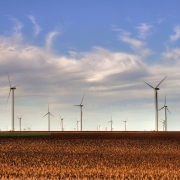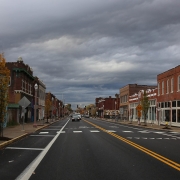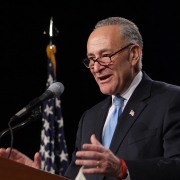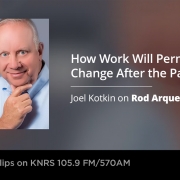Energy Colonialism Will Worsen the Urban-Rural Divide
In his drive to conquer China, Mao Zedong and his most famous general, Lin Biao, stoked “a peasant revolution” that eventually overwhelmed the cities. In those days, most Chinese toiled on the land, a vast manpower reservoir for the Communist insurgency. Today, in a world where a majority lives in urban settlements, such a strategy would be doomed to failure.
The small percentage of rural and small-town residents in most advanced countries — generally under 20 percent — lack the numbers to overwhelm the rest of society. Political and economic elites feel free to ignore the countryside, but they may find they do so at their peril. Although now a mere slice of the population, rural areas remain critical suppliers of food, fiber (like cotton), and energy to the rest of the economy.
Residents in agricultural areas have good reason to feel put upon. Their industries are often targeted by regulators and disdained by the metropolitan cognoscenti. They may not be hiding in the caves of Yan’an, but farming communities from the Netherlands to North America are rebelling against extreme government regulations, such as banning or restricting critical fertilizers or the enforced culling of herds. Meat and dairy producers are assaulted in a hysterical article in the New York Times that predicts imminent “mass extinction” caused by humans and suggests that to keep the planet from “frying” we will need to reduce meat and dairy consumption in short order.
This is occurring at a time — following decades of remarkable boosts in agricultural productivity — when food insecurity and high prices are again plaguing even wealthy countries but particularly the poorer countries in Africa. This shortfall has worsened, in part due to the Russia–Ukraine conflict, which has reduced the reliability of food exports from the Ukrainian bread basket, making Western production more critical.
Regardless, the inhabitants of the periphery — the vast area from the metropolitan fringe to the deepest countryside — and the farming that flourishes there will face an extraordinarily well-funded green movement that is now depicting “industrial farming” as one of the principal villains in their ever-expanding climate melodrama. Although greens may support the notion of small farmers using artisanal methods, and the wealthy certainly can afford the much higher food prices, niche farming cannot support most farming communities or provide ordinary consumers with reasonably priced groceries.
The regulatory tsunami reflects attitudes in the media, the academy, and the bureaucracy that generally disparage the periphery, too often regarded as depopulating, depressed places without a future. Rural residents are seen as primitives, driven by “rural rage.” They tend to be more skeptical about climate-change policies and a promised “just transition,” which only makes them even more deplorable.
Read the rest of this piece at National Review.
Joel Kotkin is the author of The Coming of Neo-Feudalism: A Warning to the Global Middle Class. He is the Roger Hobbs Presidential Fellow in Urban Futures at Chapman University and Executive Director for Urban Reform Institute. Learn more at joelkotkin.com and follow him on Twitter @joelkotkin.
Photo: Drenaline via Wikimedia under CC 3.0 License.



 Paul Sableman, used under CC 2.0 License
Paul Sableman, used under CC 2.0 License




